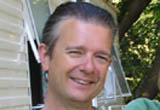The outbreak of a serious infectious disease is not just a biomedical event. It affects people and their communities, says Julian Sheather
Epidemics have mythological potential. Behind the media storm over the emergence of a new coronavirus in Wuhan—rather un-stormily named (2019-nCoV)—lie the shadows of medieval plagues. Reality of course is different. Although there is still uncertainty, science is chipping away. The DNA of the virus has been sequenced. Three vaccines are in production. Lessons may have been learned from MERS and SARS. It does look as if data are being exchanged, some collaboration is taking place. One thing is clear: knowledge is the antidote to fear. Research is as critical as first-line response.
I have been working with the Nuffield Council on Bioethics on a project on the ethics of research in global health emergencies. The final report has just been published. It has been, in the best sense, an international project, involving colleagues from across the world. It has also been a personal revelation.
I first got some idea of the personal impact of global health emergencies in Senegal, sitting in a bland hotel garden in Dakar, a stone’s throw from the sea. We were talking to survivors of Ebola, people from across the region whose lives had been irrevocably changed on contracting a disease indelibly associated with fever, haemorrhage, and death.
Yusuf Kabba is the President of the Sierra Leone Association of Ebola Survivors. He watched five members of his family die from the disease before he too felt the tell-tale fever and chills. The ambulance—which felt like his hearse—took him to a makeshift assessment centre. There were armed guards, health staff sealed inside personal protective equipment. None of them would meet his eye. For hours he lay in the smothering heat, awaiting his diagnosis. Around him, terrified people were crying out for water. Amazingly he pulled through. But on leaving the treatment centre he was told he could not return to his village. He would be shunned.
I met Yusuf at a workshop on community engagement during infectious disease outbreaks. He dispelled forever the idea that those living through global health emergencies are somehow passive victims, dependent on external rescue. After learning that he would be shunned he returned to the Ebola treatment centre as a volunteer. Drawing on bitter personal experience he started to help others who were sick and terrified.
Weighed against the scale of global human need, Yusuf’s is one small private story. But as the Nuffield Council’s report makes clear, small stories can be rich. Naively I had assumed that at the centre of our project would be the tension between the urgency of a global health emergency and the time consuming strictures of ethical research. Yes, it’s in the mix, but overwhelmingly the messages we heard were about global justice, fairness, and respect. Response cannot be something done to a community; it must be co-operative. Value—intellectual, economic—must not flow out of affected communities and back to the west. This neo-colonial ghost has to be laid. Expecting people to volunteer as research participants where their basic needs are not met is a moral outrage. To repeat: justice; fairness; respect.
The outbreak of a serious infectious disease is not just a biomedical event. It affects people and their communities. It has meaning. It provokes passions. It drives people apart; it brings strangers together. Overwhelmingly it is a human event. And for me the overriding message from my time on the working group is that responders who ignore these dimensions of a global health emergency imperil their response.
Julian Sheather is ethics manager, BMA. The views he expresses in his opinion pieces are entirely his own.
Competing interests: None declared.

